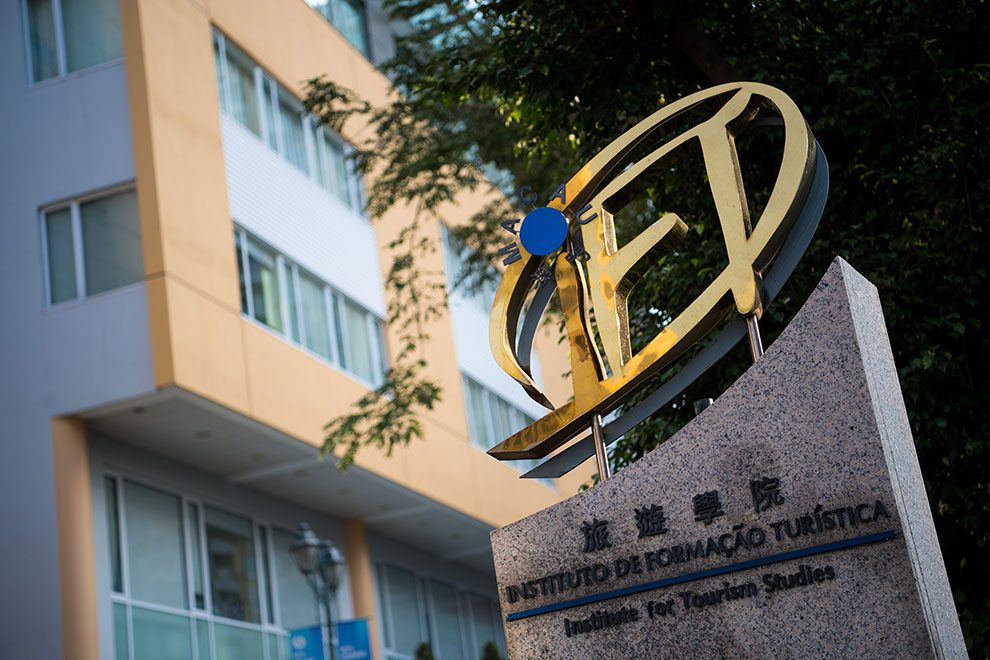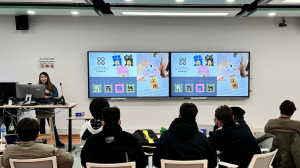IFT plans to launch its first group of postgraduate programmes – at diploma, master’s degree and PhD level – in academic year 2019/20, subject to government approval. Dr. Connie Loi, who has been leading work on the introduction of postgraduate studies at IFT, says the new programmes will help strengthen the Institute’s role as a hub regionally and internationally for tourism and hospitality education.
Enrolment for the new postgraduate diploma and master’s degree programmes is taking place between 1 and 13 May, with classes proposed to start in late August, if all goes as planned. Applications for the PhD programme can be made year-round.
The medium of instruction for all IFT postgraduate programmes will be English.
For the 2019/20 intake, IFT will be offering a total of 4 master’s degree programmes: International Hospitality Management; International Tourism Management; Hospitality and Tourism Management; as well as International Food and Beverage Management.
The list of subjects available for postgraduate diploma study in relation to 2019/20 enrolment comprises: International Hospitality and Tourism Management; Tourism Management; Hospitality Management; as well as International Food and Beverage Management.
The Institute has plans to make available additional postgraduate diploma and master’s degree programmes on International Gastronomy Management. Those 2 programmes will be launched at a later stage.
IFT postgraduate programmes
| Programme | Specialisation | Full-time Minimum duration |
Full-time Maximum duration |
Part-time Maximum duration |
| Postgraduate Diploma (PgD) |
1) International Hospitality and Tourism Management 2) Tourism Management 3) Hospitality Management 4) International Food and Beverage Management 5) International Gastronomy Management* |
1 year | 2 years | 3 years |
| Master of Science (MSc) |
1) International Hospitality Management 2) International Tourism Management 3) Hospitality and Tourism Management 4) International Food and Beverage Management 5) International Gastronomy Management* |
2 years | 4 years | 5 years |
| Doctor of Philosophy (PhD) |
1) Hospitality and Tourism Management | 3 years | 6 years | 8 years |
*Not offered for 2019/20 intake
IFT will also be introducing its first PhD programme in the upcoming academic year. The research-based programme is designed for candidates who wish to pursue a career in either an academic- or a research-related field. Applicants must have a master’s degree or above. Each applicant is required to submit a research proposal of circa 3,000 to 5,000 words in length.
Each PhD student will be assigned a supervisory team consisting of at least 2 people. The PhD candidate must produce an original piece of research, of between 40,000 and 80,000 words, in order to graduate. Other graduation requirements include having the research published in a recognised international academic journal and to have it featured in an international conference.
Focus on quality
All IFT’s inaugural postgraduate programmes are undergoing a final stage of approval from the Macao government. IFT expects to accept around 60 students in the first cycle of postgraduate admission. “We really want to focus on the quality” of the postgraduate education experience at IFT, Dr. Loi says.
To ensure IFT’s high standards of teaching are maintained and complemented under the new arrangement, IFT will continue to recruit high-calibre scholars from all around the world to join the faculty team. In addition, there are plans to have visiting scholars from other institutions, and executives from the tourism and hospitality industries, participating in the postgraduate programmes as guest lecturers.
IFT is additionally working with the World Tourism Organization (UNWTO) to have some of the Institute’s postgraduate programmes endorsed by UNWTO. Discussions on that are at a final stage.
Dr. Loi is “optimistic” about student demand for the inaugural postgraduate programmes. She highlights the fact that many IFT alumni working in Macao’s tourism and hospitality industries might consider getting a master’s degree as a route to advancing their career. Other IFT alumni that have already obtained a master’s degree elsewhere, might now want to obtain a PhD at the Institute, she adds. In addition, considerable demand may come from Mainland China and other nearby regions, the scholar adds.
Customisable, flexible
Dr. Loi says one appeal of the postgraduate diploma and master’s degree programmes at IFT is that they can easily be customised to meet the individual interests and schedule of each student. In addition, students completing an IFT postgraduate diploma will be able to “upgrade” their studies to master’s degree level provided that terms and conditions are fulfilled.
“In fact, the postgraduate diploma scheme is part of the master’s degree programmes,” Dr. Loi explains. Programmes at both levels share the same course modules, the difference being the number of credits required for graduation, and the fact that students at master’s degree level are required to produce a dissertation.
Students whether at postgraduate diploma or master’s degree level are required to complete a core module in management.
“We encourage applicants to enrol directly on a master’s degree programme,” Dr. Loi says. “But postgraduate diplomas can be a kind of ‘soft entry’ to the master’s degree level,” she adds, especially for industry executives that might have doubts about whether they have time available to study for a master’s degree.
“Those candidates can enrol first in a postgraduate diploma programme,” Dr. Loi explains. Upon completion of it, they will “already have some experience regarding managing their schedule to attend classes; if they feel confident enough, they can move to the master’s degree level, using the credits obtained during their postgraduate diploma studies.”
The system can also work in the opposite direction, to help any master’s degree students that fail to complete their dissertation. “If you cannot pass the dissertation requirement, the degree can be converted to a postgraduate diploma, provided that terms and conditions are fulfilled, so that you won’t leave empty-handed,” Dr. Loi adds.
The postgraduate diploma and master’s degree programmes will be offered in 2 formats: either full- or part-time study, with classes taking place in the evening on weekdays. An option to study a programme module by module will also be available.
A master’s degree programme at IFT involves a basic tuition fee of MOP72,000 for Macao residents. For students from outside Greater China the basic fee is MOP100,800. Dr. Loi says the fees are “competitive” compared to similar programmes on offer around the region.
IFT postgraduate programmes – tuition fees*
| Programme | Students from Macao | Students from Mainland China, Hong Kong SAR or Taiwan region |
Students from other places | Graduation credits |
| Postgraduate Diploma (PgD)** |
MOP2,000/credit | MOP2,400/credit | MOP2,800/credit | 21 |
| Master of Science (MSc)** |
MOP2,000/credit | MOP2,400/credit | MOP2,800/credit | 36 |
| Doctor of Philosophy (PhD) |
MOP2,400/credit | MOP2,880/credit | MOP3,360/credit | 36 |
* Postgraduate scholarships are available
** Programmes including the “Internationalisation” module involve a compulsory study trip that must be paid for separately, with the cost ranging between MOP20,000 and MOP50,000 (inclusive of course credit fee) depending on the selected destination
Applicants for the IFT postgraduate diploma and master’s degree programmes are required to have a bachelor’s degree and possess relevant work experience. Preference will be shown to those applicants with academic and work qualifications in hospitality or tourism, but other applicants may be considered. Those falling short of the relevant work experience requirement might be permitted by IFT to undertake a 640-hour, non-credit-bearing, internship in the industry. The idea behind that option is to assist people looking for a change of career and entry into either the tourism or hospitality sectors.









